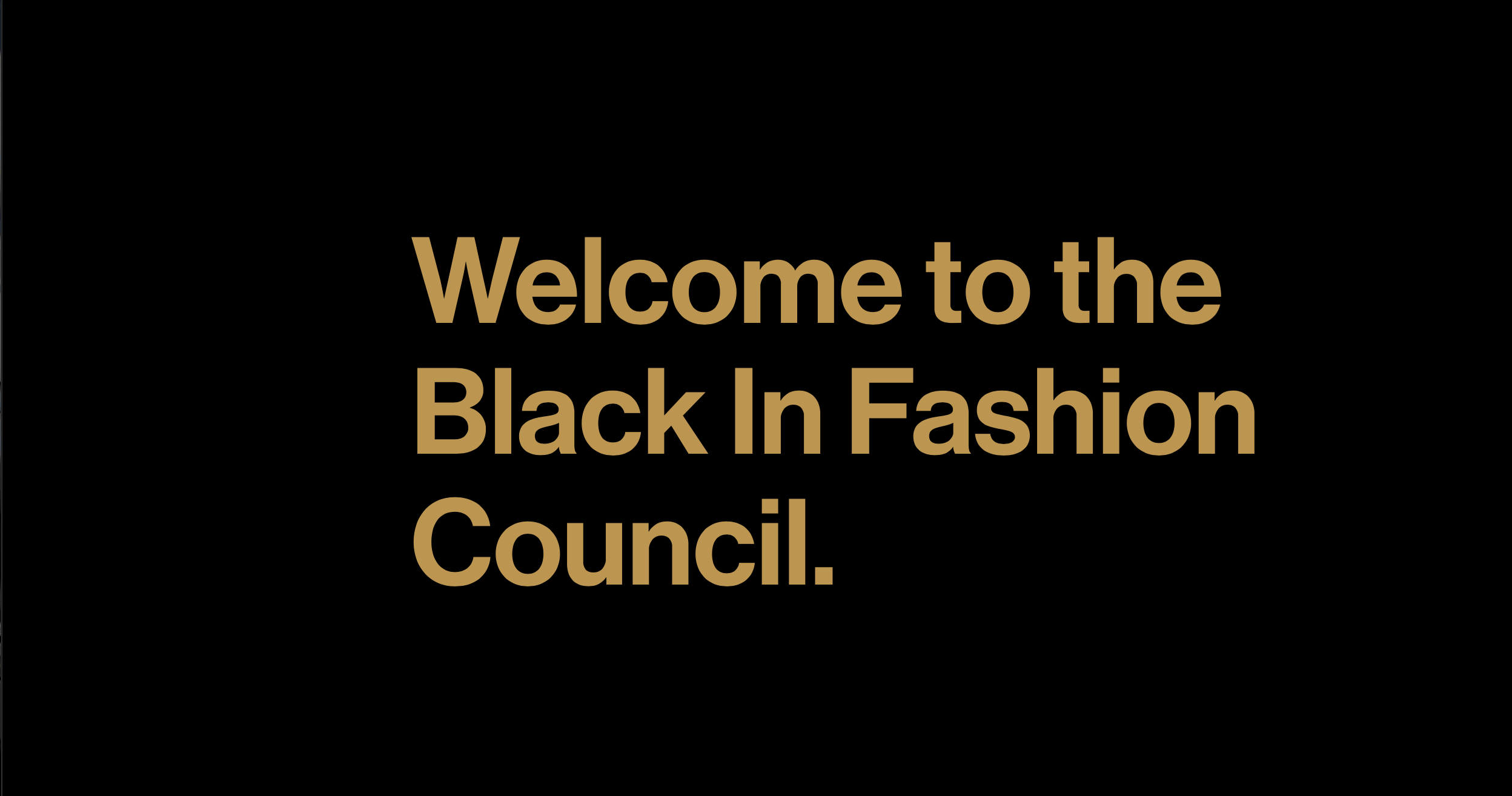Black in Fashion Council
In the midst of Black Lives Matter protests ,triggered by the police shooting of George Floyd, fashion and beauty businesses, as well as
the magazines that cover them, are being spotlighted to ascend to
new levels of accountability for their involvement in systemic racism. To answer this need for
change, Lindsay Peoples Wagner, previous Editor and Chief at Teen Vogue’s editor in chief, and Sandrine Charles,
, public relations professional, launched the Black in Fashion Council (BIFC) in late June 2020. by collaborating with companies
and holding them accountable for implementing internal reforms to promote diversity and inclusion. The
council presently works with roughly 75 companies worldwide, including brands such as Calvin Klein, Fossil,
and H&M.
The council’s purpose is to represent, foster, and safeguard the growth of Black professionals in the fashion and beauty industries. They envisage workforces in which Black Americans are represented and amplified at not only every level, but at the roles of both junior-level and C-Suite, and collaborate with allies to build diverse environments that accurately reflect what the world looks like in general. Simply put, they want to encourage individuals in the sector to rise to the occasion rather than simply being called out, for long-term, sustainable change.”
“Brands have expressed a commitment to engage with the Black in Fashion Council for the next three years, as
well as with the Human Rights Campaign, to put policy into practice further to demonstrate their commitment
to Black staff at all levels,” according to the BIFC. They will also work with the Human Rights Campaign to
establish policies that demonstrate their commitment to Black employees at all levels. The Black in Fashion
Council is made up of approximately 400 Black fashion and beauty stakeholders from various professions, and
it has already gotten backing from groups such as the Council of Fashion Designers of America.
CFDA has also pledged to “create structural change” in the industry through an in-house employment program
for Black talent, a mentoring and internship program, and the development of a diversity and inclusion training
program for members.
Peoples Wagner and Charles have also created an equality index score that will serve as a standard for
company policies and practices that are "relevant to the inclusion of Black employees." The Black in Fashion
Council will issue a public report once a year to track the work that firms that have signed a three-year
commitment promise are doing to promote the representation of Black personnel at all levels.
The Council’s executive board, which includes names like GQ deputy fashion director Nikki Ogunnaike,
costume designer Shiona Turini, and Brandice Daniel, the originator of Harlem Fashion Row, will assist in
facilitating the work that the firms have pledged to execute..
While it is evident that the fashion industry has a long way to go in its attempts to become more diverse and
inclusive, the Black in Fashion Council is ensuring that Black people not only have a seat at the table, but also
lead the discussion.
The first equality index score from the Council will be reported in June 2021. It will also provide a digital
database of Black fashion and beauty specialists for firms to acquire in order to help them diversify their
workforces. BIFC is accepting membership applications and donations, find out more on their official website:
https://www.blackinfashioncouncil.com/



